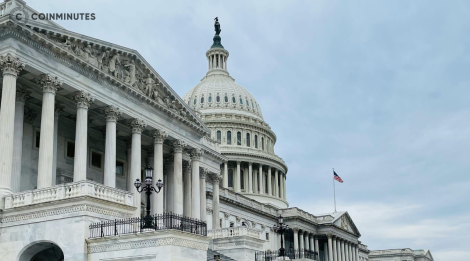Legal Sharks Circle Strategy: Why Bitcoin's Biggest Buyer Faces Copycat Lawsuits

The company formerly known as MicroStrategy now faces multiple securities fraud class actions targeting its massive Bitcoin investments. All filed within weeks. All making the same claims. All racing toward the same deadline.
You might wonder why companies get hit with carbon-copy lawsuits. Turns out, it's by design.
The Legal Gold Rush: Why Five Firms Filed the Same Lawsuit
When a potentially lucrative case emerges, law firms don't politely take turns. They sprint.
"These firms are competing for lead counsel status in securities class actions because the financial rewards can be huge," explains University of Michigan Law School professor Adam Pritchard. How huge? "Tens of millions of dollars and occasionally more in the biggest cases."
The stampede traces back to the Private Securities Litigation Reform Act of 1995. The PSLRA created a peculiar system that inadvertently rewards duplicate filings.
Here's how it works:
Courts give lead plaintiff status to investors with the biggest financial losses. These big-money plaintiffs then choose which attorneys represent everyone. Naturally, law firms want that job.
So they race to file similar complaints. Each hoping to attract the heavyweight investor who suffered most.
"The lead plaintiff role carries significant value," notes University of Colorado law professor Ann Lipton. "This party controls the litigation and selects counsel who will ultimately represent the entire class."
One case. Multiple filings. Maximum confusion.
But what exactly did Strategy do to attract this legal swarm?
Bitcoin All-In: Strategy's $6 Billion Gamble Goes Sideways
Michael Saylor had a vision. Convert a struggling software company into a Bitcoin powerhouse.
Starting in August 2020, Strategy (then MicroStrategy) went all-in on Bitcoin. They eventually amassed 592,345 BTC worth approximately $63 billion—making them the largest corporate Bitcoin holder in the world.
This wasn't a side bet. It became their entire business model.
To fund this Bitcoin buying spree, Strategy got creative. They issued billions in zero-coupon convertible notes—essentially IOUs that don't require immediate interest payments. A $2.6 billion note offering in late 2024 financed a massive Bitcoin purchase at roughly $95,000 per coin.
Then came the accounting change that changed everything.
In Q1 2025, Strategy adopted the Financial Accounting Standards Board's new rule ASU 2023-08. This seemingly technical update transformed how companies report crypto holdings.
Instead of the old "cost-less-impairment" model (which only recognized losses, never gains), companies now must use "fair value" accounting—showing current market value on quarterly reports.
Bad timing.
Bitcoin prices dipped to $82,000 during that quarter—well below Strategy's $95,000 purchase price. The result? A staggering $5.9 billion in unrealized losses hit their financial statements like a meteor.
The company warned investors they "may not be able to regain profitability in future periods" if Bitcoin losses continued.
The stock plunged. Lawyers pounced.
What Did They Hide? The Core Allegations Against Strategy
Each lawsuit makes essentially the same two claims:
First, Strategy allegedly downplayed Bitcoin's volatility risks. Despite Saylor repeatedly calling Bitcoin "digital gold" and a "zero-risk treasury asset," the Q1 financial bloodbath suggested otherwise.
Second, the lawsuits claim Strategy obscured how the new fair-value accounting rules would amplify their reported losses. Instead, they pushed alternative metrics like "Bitcoin Yield" that painted a rosier picture.
The clock is now ticking toward July 15—the deadline when a judge will select a lead plaintiff and consolidate these carbon-copy cases into one.
Law firms are aggressively recruiting plaintiffs through press releases, each hoping to represent an investor with massive losses.
But who stands to lose most in this high-stakes drama?
Power Players: The Institutional Giants Who Could Control the Case
Strategy's shareholder list reads like a who's who of Wall Street.
Besides founder Michael Saylor (holding shares worth nearly $7.8 billion), the company's largest shareholders include financial titans: Vanguard Group (8.55% stake), BlackRock and Capital International Investors (5.8% each), Susquehanna Securities (4.8%), and Jane Street Group (4.7%).
These aren't small-time investors. They're exactly the kind of institutional heavyweights courts prefer as lead plaintiffs under the PSLRA.
If Vanguard or BlackRock decides to step forward with significant losses, they could seize control of the entire litigation.
"The theory suggests that plaintiffs with greater financial stake will provide better oversight," Lipton explains. "Institutional investors are preferred because they're more likely to deliver necessary supervision."
But timing complicates everything in this case.
Bitcoin's Wild Ride: Did Strategy Just Get Unlucky?
Here's where Strategy's defense gets interesting.
The company bought roughly $7.7 billion in Bitcoin during Q1 at an average price of $95,000. When quarterly reporting came due, Bitcoin had dipped to $82,000—forcing them to report massive paper losses.
But wait.
Bitcoin has since rebounded to approximately $107,000.
This recovery transforms the narrative. Were investors truly misled about Bitcoin's volatility? Or did Strategy simply get caught in an unfortunate reporting window that coincided with a temporary market dip?
The courts will decide. But Bitcoin's dramatic recovery strengthens Strategy's argument that the losses were temporary market fluctuations, not evidence of fraud.
One quarter's financial disaster became the next quarter's windfall.
Beyond One Company: Why Every Corporate Treasurer Is Watching
This case isn't just about Strategy. It's about the future of corporate Bitcoin adoption.
Strategy pioneered the corporate treasury model that others have started to follow. If these lawsuits succeed, CFOs everywhere will think twice before adding significant crypto to their balance sheets.
The new fair-value accounting requirement creates a double-edged sword for companies: better transparency but wild earnings volatility.
Imagine reporting a $6 billion loss one quarter and a $9 billion gain the next. How do you explain that to shareholders? How do you avoid lawsuits when the downswings inevitably come?
"The risk of securities litigation adds another layer of complexity," notes financial analyst Maya Rodriguez. "CFOs are already struggling with the accounting implications; now they must factor in litigation risk."
For many companies, the answer might be simple: avoid crypto altogether.
Defense Strategies: How Strategy Plans to Fight Back
Strategy isn't surrendering.
The company acknowledged the lawsuits in SEC filings with a defiant tone: "We intend to vigorously defend against these claims. At this time, we cannot predict the outcome, or provide a reasonable estimate or range of estimates of the possible outcome or loss, if any, in this matter."
Their defense will likely focus on three key arguments:
-
The "forward-looking statement shield" under the PSLRA that protects projections if properly labeled as uncertain.
-
Bitcoin's market-wide volatility caused the losses, not company misconduct.
-
Bitcoin's subsequent recovery to $107,000 eliminates or drastically reduces actual damages.
What happens after July 15 when the cases consolidate? Discovery will begin—potentially exposing internal communications about Strategy's Bitcoin risk assessments.
For Strategy, everything is on the line. For the crypto industry, this case could set precedents that echo for years.
Will public companies embrace Bitcoin despite the accounting and legal risks? Or will Strategy become a cautionary tale that keeps corporate America on the crypto sidelines?
The battle lines are drawn. On one side: America's most aggressive securities lawyers. On the other: crypto's most vocal corporate advocate.
And in the middle: a legal system still figuring out how centuries-old securities laws apply to a decade-old digital asset class.
Whatever happens, this case will write the playbook for how public companies approach crypto for years to come. The stakes couldn't be higher—not just for Strategy, but for the entire corporate adoption of digital assets.
Bitcoin's future in corporate America may well depend on what happens next.
 English
English
 Vietnamese
Vietnamese














